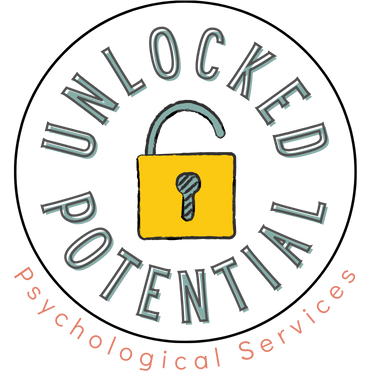Early Language Development
Watching your child grow and develop is one of the most rewarding experiences of parenthood. Your child is working to reach many milestones, especially in the early months and years. Language development is a key area of development that allows them to communicate and interact with the world around them.
Like all milestones, language development is gradual and develops in stages.
Children meet language milestones on their own time, but there are several factors that can impact how quickly and effectively these skills develop.
Language is impacted by:
Exposure to language.The more words and language a child hears, the more likely they are to develop strong language skills. You can help your child grow and develop their language skills by reading books, singing songs, and talking to them throughout the day.
Try this: Imagine that you are a sports broadcaster and narrate what you or your child is doing for a couple minutes per day. Talking aloud to yourself is a great way to teach language skills (e.g., “Where did I put my keys? I think I left them in the room. Oh, keys, where are you?! Oh, there they are!”).
Quality of interactions.Back and forth interactions with your child are important for language development. When your child makes a sound or gesture, you can encourage this by responding to them. The more you engage with your child, especially by responding to them when they try to communicate, the more likely they are to continue using their language skills.
Try this: When your young child makes a sound, echo it back to them. Do the same thing with your child who is trying to communicate but isn’t forming clear words. (e.g., If your child says “cuh” while reaching for their cup, you can say “Yes, you want your cup. Cup!”).
Environment.A nurturing and stimulating environment supports language development. It is important to provide changes for play, exploration, and social interactions with other kids and adults.
Try this: Library story time is a great place with a language rich environment and opportunities for kids to play and interact.
When to Seek HelpWhile children develop language skills at their own pace, it is very important to monitor their progress. If you have concerns about your child’s speech or language development, share your concerns with your pediatrician and/or seek advice from a local speech language pathologist.
Consider talking to a PRofessional if you notice:Limited vocabulary compared to other kids of the same age
Difficulty understanding simple instructions, like “bring me your cup” or “go to daddy”
Trouble forming sentences or making connections between words
Not engaging in conversation or play with others
As caregivers, your interaction and involvement is key to growing your child’s language development. By providing a language-rich environment filled with conversation, reading, and play, you can help develop a foundation of communication skills that will benefit them throughout their life.
Jessica Heflin, MS, CCC-SLP, is a speech language pathologist. She is passionate about early intervention and teaching communication skills to infants and toddlers. She also loves feeding therapy and helping families overcome feeding and swallowing challenges.

